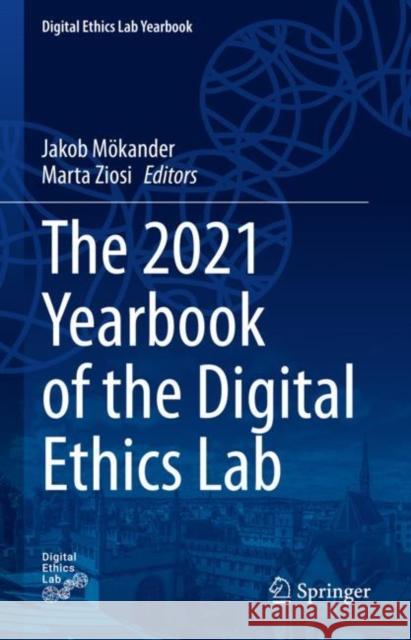The 2021 Yearbook of the Digital Ethics Lab » książka
The 2021 Yearbook of the Digital Ethics Lab
ISBN-13: 9783031098451 / Angielski / Twarda / 2022 / 283 str.
The 2021 Yearbook of the Digital Ethics Lab
ISBN-13: 9783031098451 / Angielski / Twarda / 2022 / 283 str.
(netto: 536,72 VAT: 5%)
Najniższa cena z 30 dni: 539,74
ok. 16-18 dni roboczych.
Darmowa dostawa!
This annual edited volume explores a wide range of topics in digital ethics and governance. Included are chapters that: analyze the opportunities and ethical challenges posed by digital innovation; delineate new approaches to solve them; and offer concrete guidance on how to govern emerging technologies. The contributors are all members of the Digital Ethics Lab (the DELab) at the Oxford Internet Institute, a research environment that draws on a wide range of academic traditions.Collectively, the chapters of this book illustrate how the field of digital ethics - whether understood as an academic discipline or an area of practice - is undergoing a process of maturation. Most importantly, the focus of the discourse concerning how to design and use digital technologies is increasingly shifting from ‘soft ethics’ to ‘hard governance’. Then, there is the trend in the ongoing shift from ‘what’ to ‘how’, whereby abstract or ad-hoc approaches to AI governance are giving way to more concrete and systematic solutions. The maturation of the field of digital ethics has, as this book attempts to show, been both accelerated and illustrated by a series of recent events. This text thereby takes an important step towards defining and implementing feasible and effective approaches to digital governance. It appeals to students, researchers and professionals in the field.
This annual edited volume explores a wide range of topics in digital ethics and governance. Included are chapters that: analyze the opportunities and ethical challenges posed by digital innovation; delineate new approaches to solve them; and offer concrete guidance on how to govern emerging technologies. The contributors are all members of the Digital Ethics Lab (the DELab) at the Oxford Internet Institute, a research environment that draws on a wide range of academic traditions.Collectively, the chapters of this book illustrate how the field of digital ethics - whether understood as an academic discipline or an area of practice - is undergoing a process of maturation. Most importantly, the focus of the discourse concerning how to design and use digital technologies is increasingly shifting from ‘soft ethics’ to ‘hard governance’. Then, there is the trend in the ongoing shift from ‘what’ to ‘how’, whereby abstract or ad-hoc approaches to AI governance are giving way to more concrete and systematic solutions. The maturation of the field of digital ethics has, as this book attempts to show, been both accelerated and illustrated by a series of recent events. This text thereby takes an important step towards defining and implementing feasible and effective approaches to digital governance. It appeals to students, researchers and professionals in the field.











